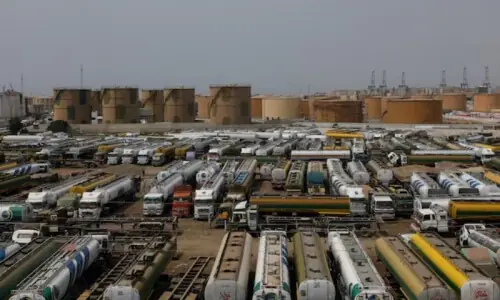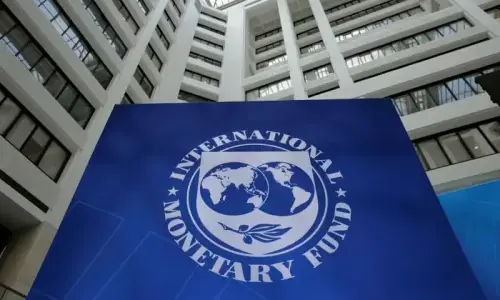“The air we receive at our birth and resign only when we die is the first necessity of our existence,” said an article in The Times Newspaper, in 1881.
To have access to clean air is a fundamental right of every human being. Despite being a vital ingredient to life, concerns about inferior air quality have been around for decades without being taken seriously. Perhaps historically, the most documented air quality problem is from the United Kingdom during the 12th century. In 1273, a Royal proclamation was issued by Edward I to prohibit the use of sea coal in open furnaces because of the harmful effects to health from smoke emissions. In the subsequent centuries, however, little or no attention was paid to anthropogenic air pollution and its subsequent impact on human health and the economic costs associated with it.
Interest in air quality in Pakistan increased when the urban smog and air pollution became so inferior one could visibly see its detrimental impact. Lahore, due to its landlocked geographical location, is submerged in smog from September to March, not only impacting the air quality but also restricting economic activity resulting in a huge financial loss.
Higher levels of pollutants in the atmosphere also lead to temperature change that changes the chemical composition of the atmosphere. Direct emissions of air pollutants (eg, black carbon), or those formed from emissions such as sulfate and ozone, can also influence this energy balance.
Pakistan ranks as the second most polluted country in the world with an average Air Quality Index of 153 in 2020, falling in the unhealthy category under the WHO guidelines
Pakistan ranks as the second most polluted country in the world with an average Air Quality Index of 153 in 2020 — falling in the unhealthy category under the World Health Organisation (WHO) guidelines. A study conducted by the Pakistan Environmental Protection Agency with the assistance of the Japan International Cooperation Agency revealed that the inhalable suspected particulate matter was ten times greater than the WHO specified limits. Thus, climate change and air pollution management have consequences for each other. One does wonder, knowing all that we know, why is there is still a lack of action?
Unlike climate change, the air quality of a particular region is dependent on the local practices of air emissions, types of industrial and agricultural practices, and the geophysical conditions. Because in the short to medium term, bad air quality is the direct result of human activity around the local area making it easier to monitor and control. Therefore, theoretically managing air quality, identifying the source(s) of pollution ought to be the easier part. It is the unavailability of up-to-date air quality standards and lack of compliance with existing pollution control legislation that has gotten Pakistan to these current levels of air pollution.
In a webinar hosted by the Pakistan Business Council on ‘Business Leadership on Air Quality’, existing environmental legislation was criticised for being archaic where the allowed limit for sulphate in petroleum is one of the highest in the world. These relaxed policies catered to the 90s where the ambient air quality was much better than what we have today.
Suffice to say the legislation needs to be updated with stricter quality standards and mandatory reporting of emissions across all sectors. Unfortunately setting regulatory frameworks is as much technical as it is political in nature. All provinces have autonomy on how strict they want to be and what allowances they want to grant. The politics of it all, along with the real costs associated with changing policy standards, makes this task even more daunting. But it is very clear that in the long run the benefits of clean air far out way the initial cost of clean air policy change.
Building on this, the private sector needs to work closely with their stakeholders in order to develop more effective and efficient programmes keeping WHO clean-air guidelines as benchmarks. Furthermore, private companies, public institutions, and sectoral experts can also play a role in this through their commitment to “Race to Zero” carbon emissions. Some private sector companies in Pakistan have joined the Climate Ambition Alliance and have set science-based targets to achieve net-zero emissions by 2050. In this respect, businesses can lead the way in changing the course of our response to the air crisis by injecting a sense of urgency and encouraging other private companies to join in by showcasing that it is possible to be an environmentally responsible business while showing strong profits.
Investors are interested to know which companies are likely to face reputational and compliance risks related to pollution, which are best prepared, and which are taking action. These practices can help a business find sustainable practices that translate to market advantages by enabling access to new capital, cost savings, and a better reputation — hence creating a clear business case for improving air quality.
The writer works in the Centre for Excellence in Responsible Business, a Pakistan Business Council initiative as a research associate
Published in Dawn, The Business and Finance Weekly, October 11th, 2021



































